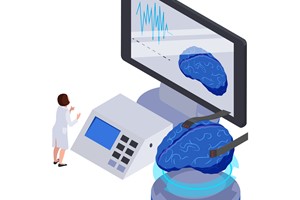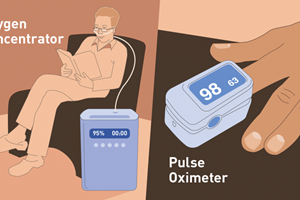YPrime, a leading provider of innovative solutions for clinical trials, has recently unveiled a groundbreaking glucometer functionality integrated into its electronic Clinical Outcome Assessment (eCOA) platform. This innovative feature, developed in collaboration with diabetes patients, aims to revolutionize the landscape of endocrinology and autoimmune clinical trials by offering a more patient-centric experience.
The newly introduced functionality seamlessly supports a variety of glucometer devices, aligning with YPrime's strategy to connect multiple therapeutic areas through integrated devices. This feature specifically addresses the distinct needs of diabetes patients, clinical trial sites, and sponsors.
Key features of the new functionality include:
- Effortless Pairing: Glucometer devices effortlessly pair with YPrime's eCOA app, ensuring secure data transfer and reducing participant burden during clinical trials.
- Intelligent Categorization: Patients can categorize glucose readings, such as fasting or post-meal, while continuous monitoring provides valuable context for data analysis.
- Timely Alerts: High and low blood glucose alerts ensure prompt notifications, promoting symptom reporting and enhancing patient compliance throughout the trial.
- Patient-Centric Design: The interface has been meticulously crafted with extensive input from diabetes patients, ensuring it is intuitive and user-friendly.
Mike Hughes, Chief Product Officer of YPrime, expressed excitement about the launch, stating, "We are thrilled to introduce this revolutionary glucometer functionality. By listening closely to patients living with diabetes and leveraging our expertise in eCOA, we have created a solution that truly empowers patients and unlocks new possibilities for endocrinology clinical trials and any indication requiring blood glucose logs."
The development process involved conducting in-depth interviews with diabetes patients to ensure that the final product meets their real-world needs. By automating data collection and transfer, the burden on both patients and clinical staff is significantly reduced while maintaining data integrity.
This advancement holds significant implications for various stakeholders in healthcare and clinical research. For patients, it translates to less manual logging and fewer errors, thereby reducing the burden of participation in clinical trials. Researchers and sponsors stand to benefit from streamlined data collection, leading to more accurate results and expedited trials.
Experts have lauded this move as a step forward in patient-centric healthcare technology, emphasizing its potential to enhance the quality and efficiency of clinical trials. However, some caution that while technology integration is beneficial, accessibility to all patients, including those who may struggle with new tech, must be ensured.
Furthermore, this development raises broader questions about the role of technology in healthcare, with proponents highlighting its potential to reduce costs and improve outcomes, while others stress the importance of bridging the gap between different patient demographics.
As YPrime continues to expand its device integrations, the healthcare community eagerly anticipates the impact of this new feature on clinical trials and patient experiences. For now, the innovative glucometer functionality represents a promising stride towards more efficient and patient-focused clinical research.











